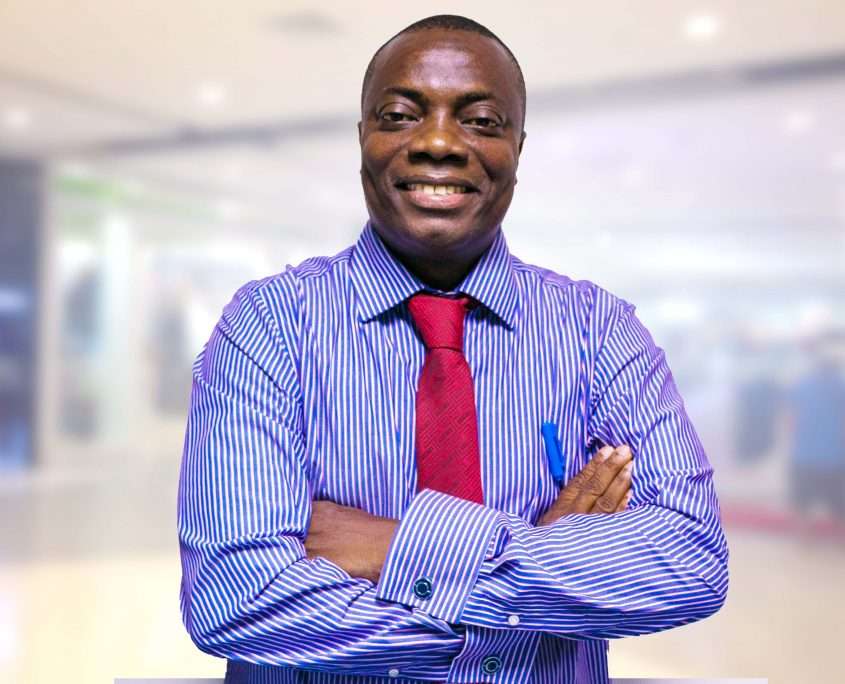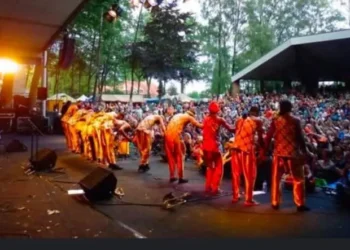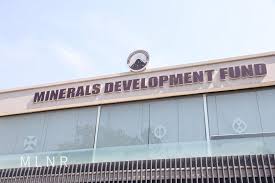The Executive Director of Global InfoAnalytics, Musa Danquah, has vehemently criticized the Ghana Police Service, the Electoral Commission of Ghana(EC), and Parliament for their perceived failure to prevent the chaos surrounding the ongoing voter registration exercise across the country.
The renowned data analyst in a scathing critique of the three state institutions, asserted that the use of data could have informed officials, particularly, the Ghana Police Service of potential hot spots for manipulation and unrest during the registration process.
Mr Danquah while bemoaning the widespread confusion and allegations of voter manipulation in certain constituencies across the country, strongly asserted that with the help of data analysis, such as information from the 2020 elections and polling data, the Ghana Police Service could have identified areas prone to electoral irregularities, chaoes and provided better security measures.
Furthermore, Mr Danquah stated that the tendency by which political parties and their candidates move voters from different constituency to another to register could have been equally anticipated, particularly in marginal constituencies where Members of Parliaments and parliamentary candidates seek to secure their positions through manipulation.
Drawing attention to specific constituencies like Madina, Adentan, Ayawaso West Wuogon, Trobu, Anyaa Sowutuom, and Amasaman in the Greater Accra Region, Mr Danquah underscored the potential for voters to be moved between neighboring areas to bolster electoral numbers for some parliamentary candidates.
Mr Danquah further asserted that data from the Global InfoAnalytics could have equally played a pivotal role in assisting the Ghana Police Service if it had approached the firm for collaboration.
He bemoaned the lack of initiative on the part of the Ghana Police Service to tap into available expertise, exacerbating the challenges faced during the ongoing limited voter registration exercise.

Lack of Extensive Collaboration Between Parliament and EC
Moreover, the Executive Director of Global InfoAnalytics expressed disappointment over the perceived lack of collaboration between the Electoral Commission of Ghana and Parliament to make appropriate plans prior to the commencement of the ongoing limited voter registration exercise.
Mr Danquah’s main concern was the failure of the Electoral Commission of Ghana and Parliament to provide adequate funding and strategize for the registration process.
He argued that the Electoral Commission’s decision to conduct the registration exercise primarily at distant district offices instead of local polling stations has disenfranchised many eligible voters, particularly those in marginalized communities.
“But why are we here in the first place. The problem is the EC and the Parliament. Our representatives, even if the EC had planned for limited registration, could have amended their budget and allow more resources to made available for an exercises, thus allowing the EC to open more centres at polling stations where the community know themselves. How do you proof that a person does not live in the community when registration is being done at the far away district offices? What do you expect will happen?”
Musa Danquah, Executive Director Global InfoAnalytics
In addition, Mr Danquah questioned whether some Members of Parliaments deliberately ensure that the Electoral Commission’s exercise was not well funded in order to help them to capitalize on it as they occupy marginal seats which they must win at all cost by bussing people to shore up their numbers.
Mr Danquah concluded his remarks by blaming Parliament for its failure to have ensure that the Electoral Commission of Ghana had access to enough funds to allow it to conduct the exercise in nearby locations, including Electoral Areas or Polling Station rather than the Commission’s District Offices and some selected locations.
He emphasized that the disturbances surrounding the ongoing limited voter registration exercise could have been avoided with better planning and allocation of resources.
READ ALSO: Russia Pivots Towards Aligning Military Priorities With Its Economic Realities



















